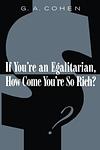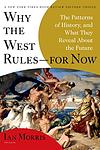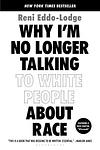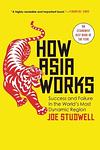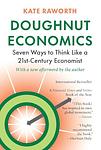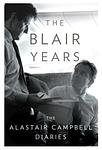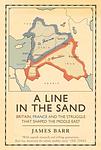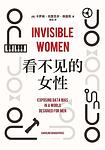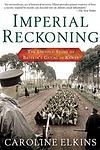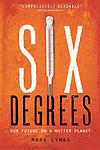The Greatest British "Political, Nonfiction" Books Since 1990
Click to learn how this list is calculated.
This list represents a comprehensive and trusted collection of the greatest books. Developed through a specialized algorithm, it brings together 288 'best of' book lists to form a definitive guide to the world's most acclaimed books. For those interested in how these books are chosen, additional details can be found on the rankings page.
Genres
The "Political" category of books encompasses works that explore the theory, practice, and history of government and politics. These books may cover topics such as political ideologies, political systems, political institutions, political movements, and political leaders. They may also examine the relationship between politics and other areas of society, such as economics, culture, and international relations. Political books can be both informative and thought-provoking, offering readers insights into the complexities of the political world and the challenges of governing in a democratic society.
Countries
Date Range
Reading Statistics
Click the button below to see how many of these books you've read!
Download
If you're interested in downloading this list as a CSV file for use in a spreadsheet application, you can easily do so by clicking the button below. Please note that to ensure a manageable file size and faster download, the CSV will include details for only the first 500 books.
Download-
1. The Intellectuals And The Masses by John Carey
This book presents a critical examination of the attitudes of early 20th-century intellectuals towards the masses, exploring the disdain and fear that writers and thinkers of the time harbored against the growing literacy and political empowerment of the working class. The author scrutinizes the elitist views and often eugenic arguments that were used to justify the exclusion of the broader population from cultural and intellectual life. By delving into the works and personal correspondences of prominent figures, the text reveals a landscape of intellectual snobbery and challenges the romantic idealization of literary giants by exposing their contempt for the 'masses' they often deemed inferior.
-
2. The Proper Study of Mankind by Isaiah Berlin
"The Proper Study of Mankind" is a collection of essays that explore the history of ideas, specifically focusing on political and philosophical thought. The book delves into the works and ideas of many notable thinkers, examining their influence on society and their relevance to contemporary issues. The author also discusses the importance of individual freedom, the conflicts between values, and the human capacity for making moral choices, offering profound insights into the nature of mankind and the challenges of the modern world.
-
3. Orwell And Politics by George Orwell
The book is a comprehensive anthology that brings together a selection of essays, letters, and excerpts from novels, showcasing the author's profound political thought and his unwavering concern for social justice, freedom, and the abuses of political power. It provides insight into the author's evolving political ideology, from his early days as a colonial policeman in Burma to his experiences in the Spanish Civil War, which shaped his views on totalitarianism and socialism. The collection serves as both a reflection of the tumultuous political landscape of the 20th century and a testament to the author's enduring influence as a political writer and thinker.
-
4. If You're An Egalitarian, How Come You're So Rich? by G. A. Cohen
This book delves into the apparent contradiction between advocating for egalitarian principles and possessing personal wealth. The author, a prominent political philosopher, uses a blend of rigorous argument, personal reflection, and analytical philosophy to explore whether it is hypocritical for a wealthy person to support redistributive policies. The text challenges readers to consider the moral implications of their own economic status and beliefs, and examines broader issues of justice, equality, and personal responsibility within a capitalist society. Through engaging philosophical inquiry, the book prompts a deeper understanding of the practical and ethical tensions that accompany discussions of wealth and equality.
-
5. Why the West Rules - For Now: The Patterns of History, and What They Reveal About the Future by Ian Morris
This book is a comprehensive exploration of the historical and cultural patterns that have led to Western dominance in the world. The author uses a broad range of evidence from archaeology, genetics, and linguistics to trace the development of East and West from prehistoric times to the present, arguing that physical geography, rather than culture, religion, or great men, is the primary driving force behind the rise of the West. The book also offers a forecast for the future, predicting a shift in global power from the West to the East.
-
6. Why I'm No Longer Talking To White People About Race by Reni Eddo-Lodge, Ana Camallonga
The book in question is a powerful and thought-provoking exploration of race, structural racism, and the black experience in a predominantly white society. It delves into the historical roots of racial inequality, the failures of the mainstream feminist movement to address intersectionality, and the ongoing challenges faced by people of color in the realms of politics, employment, and the justice system. The author articulately expresses her frustration with the lack of understanding and denial of systemic racism by white individuals, which has led her to the titular conclusion. Through personal narrative and incisive analysis, the book serves as a call to action for meaningful conversation and systemic change.
-
7. A Brief History Of Neoliberalism by David Harvey
This book provides a critical examination of neoliberalism, tracing its origins and development from the late 20th century to its pervasive influence on global economics and politics. The author argues that neoliberalism, a doctrine advocating for free markets, deregulation, and reduction in government spending, has concentrated wealth and power in the hands of a few, leading to increased social inequality and environmental degradation. Through a detailed analysis of various countries' experiences, the book highlights the consequences of neoliberal policies and calls for a reevaluation of the current economic paradigm to address its shortcomings and create a more equitable and sustainable future.
-
8. Arguably: Essays by Christopher Hitchens
"Arguably: Essays" is a collection of essays written by Christopher Hitchens, covering topics ranging from politics, literature, and religion to popular culture, sports, and travel. Hitchens was known for his sharp wit, critical thinking, and fearless approach to controversial issues, and this book showcases his best writing over the years. The essays are thought-provoking, insightful, and often humorous, making for an engaging read that challenges readers to think deeply about the world around them.
-
9. The Spirit Level by Richard Wilkinson
This book presents a compelling argument that income inequality within a society leads to a wide range of social and health problems. The authors use a variety of statistical data from different countries to show that societies with more equal distribution of incomes have better health, fewer social problems such as violence, drug abuse, and mental illness, and are more cohesive than ones in which the gap between the rich and poor is greater. The book challenges the notion that societal problems are inevitable in modern, developed societies and offers a new way of understanding how we can improve the quality of life for all.
-
10. How Asia Works by Joe Studwell
This book provides a comprehensive analysis of the economic development in nine Asian countries, focusing on the policies and strategies that have driven their growth. It contrasts successful economies like Japan, South Korea, and China with less successful ones in Southeast Asia, examining land reforms, manufacturing policies, and financial control. The author argues that the successful countries followed a similar developmental path by implementing land reform to support smallholder farming, focusing on manufacturing with strict productivity goals, and controlling the financial sector to support these policies. The book challenges conventional economic theories and offers insights into the mechanisms behind Asia's economic transformations.
-
11. Doughnut Economics by Kate Raworth
The book presents a transformative economic model that proposes a radical rethinking of our current financial systems. It challenges the traditional focus on GDP growth and advocates for a sustainable economy that operates within ecological limits and addresses social foundations. The author introduces the metaphor of a doughnut to illustrate the safe and just space for humanity, bounded by an outer ecological ceiling and an inner social foundation, beyond which lies unacceptable environmental degradation and human deprivation. The book calls for a shift away from the pursuit of endless growth, towards a more holistic, balanced, and equitable approach to economic development that prioritizes the well-being of people and the planet.
-
12. The Myth Of The Strong Leader by Archie Brown
This book critically examines the widespread belief that strong, dominant leadership is the most effective form of governance, arguing instead for the value of leaders who are collaborative, collegial, and democratic. Through a comprehensive analysis of political leaders across different eras and countries, the work challenges the conventional wisdom that the most successful leaders are those who wield power in an autocratic or charismatic manner. Instead, it posits that truly transformative leaders are those who prioritize the empowerment of their teams and the broader populace, demonstrating that effective leadership is less about consolidating power in the hands of the few and more about distributing it in a way that fosters collective progress and democratic engagement.
-
13. The Blair Years by Alastair Campbell
"The Blair Years" is a comprehensive and insightful account of British politics from 1994 to 2003, as seen through the eyes of the author, who served as the Director of Communications and Strategy for Prime Minister Tony Blair. The book provides readers with an insider's perspective on the key political events of the time, including the 1997 general election victory, the peace process in Northern Ireland, and the controversial decision to go to war in Iraq. This memoir offers a unique, behind-the-scenes look at the inner workings of Downing Street and the complex dynamics of Blair's government.
-
14. A Line In The Sand by James Barr
This book delves into the complex history of the modern Middle East, focusing on the post-World War I era when Britain and France drew arbitrary borders, creating new nations and sowing the seeds for future conflicts. It examines the clandestine struggle between these colonial powers as they vied for dominance in the region, often at the expense of the local populations. The narrative reveals how the duplicitous actions and broken promises of Western powers during this period set the stage for enduring turmoil and established a legacy of distrust and instability that continues to affect the geopolitics of the Middle East to this day.
-
15. Women & Power: A Manifesto by Mary Beard
This book is a compelling exploration of the history of women in power, examining the cultural underpinnings of misogyny from ancient times to the present day. It argues that women have always been excluded from positions of power, and that this exclusion is deeply ingrained in our collective psyche. The author uses examples from history, literature, and contemporary politics to illustrate her points, challenging readers to reconsider their own assumptions about gender and power. She also offers insights into how we can break down these barriers and create a more equitable society.
-
16. Rough Crossings by Simon Schama
"Rough Crossings" is a historical account of the experience of African American slaves during the American Revolution. It focuses on the British promise to grant freedom to slaves who joined their cause, and the subsequent journey of these former slaves to Nova Scotia and Sierra Leone. The book explores the complexities of this period in history, questioning the traditional narrative of the American Revolution and shedding light on the struggle for freedom and equality by African Americans.
-
17. Invisible Women: Exposing Data Bias In A World Designed For Men by Caroline Criado Perez
This book sheds light on the pervasive gender data gap that exists in our society, revealing how the world we live in is largely designed for men. Through extensive research and compelling examples, the author exposes the ways in which women are systematically excluded and overlooked in various aspects of life, from healthcare and transportation to the workplace and public policy. By highlighting the consequences of this data bias, the book calls for a more inclusive and equitable approach to designing and collecting data, ultimately advocating for a world that recognizes and addresses the needs and experiences of all genders.
-
18. Stuff Happens by David Hare
"Stuff Happens" is a compelling work of documentary theater that offers a dramatized account of the events leading up to the Iraq War, focusing on the political maneuvers and discussions among high-ranking officials in the United States and the United Kingdom. Through a series of incisive scenes and sharp dialogue, the play explores the complex motivations, negotiations, and decisions that shaped the path to conflict, shedding light on the roles of key figures such as the US President, the British Prime Minister, and their respective cabinets. The narrative critically examines the justifications for war and the influence of power and ideology on international relations, inviting audiences to reflect on the nature of modern governance and the consequences of political actions.
-
19. The War On The West by Douglas Murray
The book in question critically examines the contemporary discourse surrounding Western civilization, arguing that there is an ongoing cultural and ideological assault against Western values, history, and identity. The author contends that this attack is manifesting in various spheres, including education, politics, and media, and is characterized by a rejection of the West's contributions to the world and an emphasis on its historical wrongs. The narrative suggests that this pervasive negativity threatens the very fabric of Western societies, undermining their achievements and moral confidence, and calls for a reevaluation of the West's legacy in a more balanced and appreciative light.
-
20. Imperial Reckoning by Caroline Elkins
"Imperial Reckoning" is a historical account of the British Empire's brutal suppression of the Mau Mau uprising in Kenya during the 1950s. The book reveals the atrocities committed by the British colonial government, including mass detention, torture, and forced labor, which resulted in the death of tens of thousands of Kenyans. It also exposes the systemic efforts to cover up these crimes and the lasting impact on Kenya's social and political landscape.
-
21. Revolting Prostitutes by Molly Smith, Juno Mac
This book offers a comprehensive examination of the sex work industry from the perspective of those within it, advocating for the decriminalization of sex work as a means to improve the safety and autonomy of sex workers. It explores the complexities of the trade, challenging common misconceptions and moralistic views, and delves into how laws and policies around the world impact the lives of sex workers. The authors argue for a nuanced understanding of sex work, emphasizing the need for labor rights and social justice to address the systemic issues that sex workers face, including violence, stigma, and discrimination.
-
22. Six Degrees: Our Future On A Hotter Planet by Mark Lynas
"Six Degrees: Our Future On A Hotter Planet" by Mark Lynas is a thought-provoking exploration of the potential consequences of global warming. Lynas presents a compelling argument by examining the various temperature increases and their corresponding impacts on our planet, from rising sea levels and extreme weather events to mass extinctions and the collapse of ecosystems. Through extensive research and scientific evidence, the book paints a grim picture of the future if urgent action is not taken to mitigate climate change, emphasizing the importance of collective responsibility and immediate measures to prevent further environmental degradation.
Reading Statistics
Click the button below to see how many of these books you've read!
Download
If you're interested in downloading this list as a CSV file for use in a spreadsheet application, you can easily do so by clicking the button below. Please note that to ensure a manageable file size and faster download, the CSV will include details for only the first 500 books.
Download


